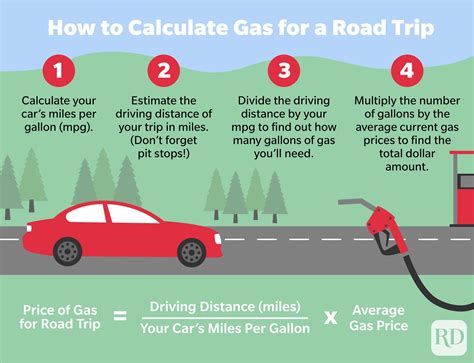Beyond Macros: The Essential Role of Micronutrients in Men’s Health
In the quest for optimal metabolic health and sustained energy, conversations frequently revolve around the triumvirate of macronutrients: carbohydrates, proteins, and fats. We meticulously count grams, calculate ratios, and debate the merits of high-carb versus low-carb or high-fat diets. Yet, quietly working behind the scenes, a cast of unsung heroes—micronutrients—orchestrates the very metabolic processes that convert those macronutrients into usable energy, regulate hormones, and maintain overall physiological balance. For men aiming for consistent vitality and robust metabolic function, overlooking these vital vitamins and minerals is a significant oversight.

The Unsung Orchestrators of Energy Production
Micronutrients are not just ‘nice-to-haves’; they are critical cofactors and catalysts in nearly every biochemical reaction in the body. For men’s metabolic health, this means they are indispensable for:
- Energy Conversion: Transforming glucose, fatty acids, and amino acids into ATP (adenosine triphosphate), the body’s primary energy currency.
- Hormone Regulation: Supporting the synthesis and function of key hormones, including testosterone and thyroid hormones, which profoundly impact energy, mood, and metabolism.
- Insulin Sensitivity: Helping cells respond effectively to insulin, crucial for stable blood sugar levels and preventing metabolic syndrome.
- Antioxidant Defense: Protecting cells from oxidative stress, a contributor to chronic diseases and premature aging.
- Neurotransmitter Synthesis: Influencing brain function, mood, and cognitive energy.
Key Micronutrients for Men’s Sustained Energy and Metabolic Vigor
While a comprehensive diet ensures a spectrum of micronutrients, some play particularly pivotal roles for men:
B Vitamins: The Energy Factory Workers
The entire B-vitamin complex (B1, B2, B3, B5, B6, B7, B9, B12) is fundamental to energy metabolism. They act as coenzymes in the breakdown of carbohydrates into glucose, fats into fatty acids, and proteins into amino acids, and their subsequent conversion into energy. Deficiencies, particularly in B12 (common in vegans/vegetarians and older men) and B9 (folate), can lead to fatigue, weakness, and impaired cognitive function.
Magnesium: The Master Mineral
Involved in over 300 enzymatic reactions, magnesium is critical for energy production, muscle function, nerve transmission, blood glucose control, and blood pressure regulation. Many men are deficient due to modern diets, leading to symptoms like fatigue, muscle cramps, and difficulty sleeping – all of which impact sustained energy. Adequate magnesium also supports healthy testosterone levels.

Zinc: The Male Health Powerhouse
Crucial for immune function, protein synthesis, and cell division, zinc also plays a significant role in male reproductive health and testosterone production. Low zinc levels can lead to reduced energy, impaired immune response, and hormonal imbalances, directly impacting metabolic health and vitality.
Vitamin D: More Than Just Bones
Often referred to as a prohormone, Vitamin D receptors are found throughout the body, including in cells involved in metabolism and hormone production. Optimal Vitamin D levels are linked to improved insulin sensitivity, reduced inflammation, and better testosterone levels. Deficiency is widespread and can contribute to fatigue and metabolic dysfunction.
Chromium: The Glucose Balancer
This trace mineral enhances the action of insulin, helping to regulate blood sugar levels. For men managing blood glucose or aiming for stable energy without crashes, chromium can be a silent ally in metabolic management.

The Synergy: Macros and Micros Work Hand-in-Hand
It’s not an either/or scenario. Macronutrients provide the raw fuel, but micronutrients are the spark plugs, engine oil, and navigation system that ensure that fuel is efficiently burned and utilized. Without sufficient micronutrients, even the most perfectly balanced macronutrient diet can fall short, leading to metabolic inefficiency, chronic fatigue, and an increased risk of long-term health issues.
For example, you can consume plenty of protein, but without B6 and zinc, your body struggles to synthesize and utilize amino acids effectively. You can eat complex carbohydrates, but without magnesium and chromium, insulin signaling might be impaired, leading to energy fluctuations.

Practical Steps to Optimize Micronutrient Intake
To ensure adequate micronutrient intake and support sustained energy and metabolic health, men should prioritize:
- Nutrient-Dense Whole Foods: Emphasize a diet rich in a variety of fruits, vegetables (especially leafy greens), whole grains, lean proteins, nuts, and seeds. These are natural powerhouses of vitamins and minerals.
- Diversity is Key: Don’t stick to the same few foods. Rotate your choices to get a broader spectrum of micronutrients.
- Consider Soil Depletion: Modern agricultural practices can deplete soil of nutrients, potentially leading to less nutrient-dense produce. Organic and locally sourced foods may offer benefits.
- Strategic Supplementation: While food first is ideal, targeted supplementation (e.g., Vitamin D, Magnesium, a B-complex) under the guidance of a healthcare professional can fill gaps, especially for those with specific dietary restrictions, absorption issues, or higher needs.

Conclusion
Discussions around men’s metabolic health and energy levels must expand beyond the exclusive focus on macronutrient ratios. Micronutrients are the fundamental building blocks and regulators that allow macronutrients to fulfill their potential. By paying conscious attention to a diverse, nutrient-dense diet and addressing potential deficiencies, men can unlock a more efficient metabolism, enjoy more sustained energy throughout their day, and build a stronger foundation for long-term health and vitality. It’s time to give these vital, tiny components of our diet the recognition they deserve.




